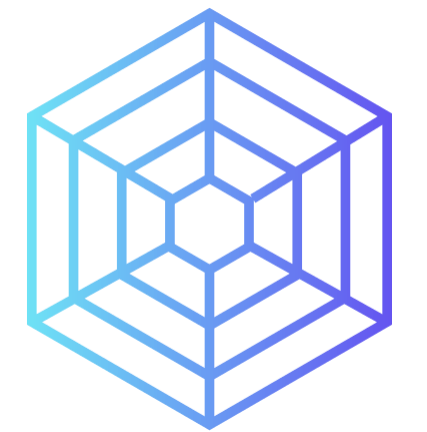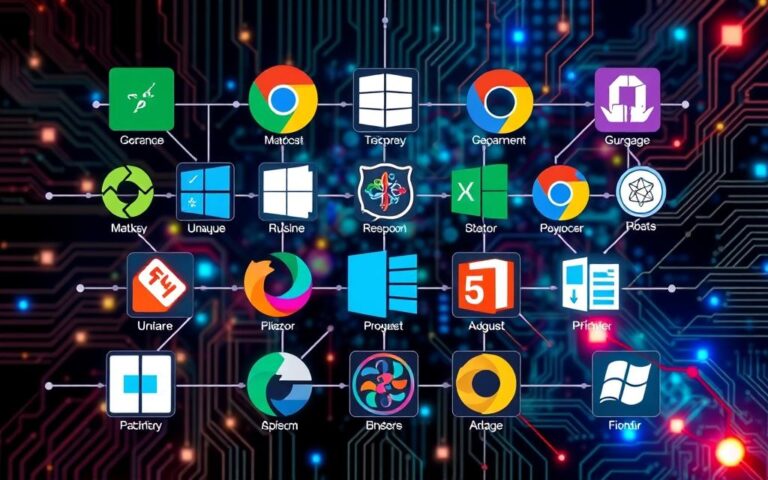What Does a Computer Scientist Actually Do?
In today’s tech-driven world, many wonder about the role of computer scientists. These experts solve problems through innovation. Even though we might not often hear the term “Computer Scientist,” these graduates take up roles like software engineers and data analysts. They design new computer systems, create complex algorithms, and find computing solutions for big problems.
The demand for these professionals is growing fast. The U.S. Bureau of Labor Statistics shows a 23% job growth expected from 2022 to 2032. This growth is much faster than other jobs. Also, the median salary for these scientists was about $145,080 in May 2023. This shows how valuable their skills are as technology advances.
Indeed, the field of computer science offers diverse and essential roles. It brings advancements in technology and opens up exciting career options. This is great for those driven by curiosity and creativity.
Understanding Computer Science
Diving into the definition of computer science unveils a vibrant area. It includes the study of computers and what they can do. This subject merges theory with practice leading to many tech breakthroughs.
The Definition of Computer Science
At its core, computer science basics delve into algorithms, data structures, and creating software. It covers various topics, helping both students and experts grasp key theories. This knowledge is then used to solve real-world issues.
Theoretical vs Practical Aspects
Computer science has two main sides: theoretical computer science and practical computer science. The first looks at abstract concepts and solving problems. The latter turns these ideas into real solutions. Both sides are vital for technological progress and finding new ways to address technical problems.
The Role of Algorithms in Computer Science
Algorithms are crucial in computing as they guide task execution. The creation and analysis of algorithms in computing affect systems’ design and how well they work. Gaining skills in algorithm design allows computer scientists to solve complex issues effectively, paving the path for innovation in this constantly changing area.
| Field | Mean Entry-Level Salary | Mean Annual Wage | Highest 10% Salary |
|---|---|---|---|
| Computer Programmers | $64,048 | $107,750 | $167,230 |
| Computer Hardware Engineers | $76,707 | $147,770 | $212,770 |
| Computer Systems Analysts | $60,865 | $110,800 | $165,700 |
| Data Scientists | $86,906 | $119,040 | $184,090 |
| Software Developers | $68,041 | $138,110 | $208,620 |
| Web Developers | $52,224 | $95,570 | $157,280 |
| Computer Science Teachers (Postsecondary) | N/A | $106,380 | $175,150 |
What Do They Do in Computer Science
Computer science covers a huge range of roles, each crucial for tech progress. It meshes creativity, tech know-how, and problem-solving. This mix pushes the tech industry forward every day.
Daily Responsibilities of Computer Scientists
Each computer science role has unique daily tasks. But certain tasks are common across the board. For example, they might start by tackling an issue to boost efficiency. These could be:
- Coding new software or applications
- Updating existing systems to improve performance
- Conducting rigorous testing and quality assurance
- Engaging in collaborative projects to integrate new technologies
Key Tasks in Various Roles
What computer scientists do varies by their job. Programmers write and tweak code. Systems analysts look at tech to suggest betterments. Developers work on software, testing it and rolling out updates. Each role plays a distinct part in tech’s ecosystem. A quick summary:
| Role | Key Tasks | Median Salary (2023) |
|---|---|---|
| Computer Programmer | Write and maintain code | $99,700 |
| Systems Analyst | Evaluate system performance | $103,800 |
| Software Developer | Design and update applications | $132,270 |
| Information Security Analyst | Protect systems and data | $120,360 |
Career Growth and Opportunities
The future looks bright for computer science experts. There’s a growing need for skilled workers. Info security roles might jump by 32% by 2032. Software developers will see a 26% hike. These roles offer promising salaries. For example, in 2023, computer scientists can earn about $145,080. These stats show the dynamic career potential in computer science.
Common Career Paths for Computer Scientists
Computer science is full of different career paths. This variety suits many interests and skills. For those looking at future opportunities in this field, understanding the possible roles is crucial. Here are the most common jobs, showing what’s out there for budding professionals.
Roles in Software Development
Software development roles are abundant for computer scientists. We’re talking about jobs like software engineers, system architects, and mobile app developers. These positions require a good knowledge of coding languages and understanding user needs. Main tasks include:
- Creating and maintaining software products.
- Working with designers to improve usability.
- Enhancing the performance and functionality of applications.
Here are some average salaries:
| Position | Average Salary |
|---|---|
| Software Developers | $105,000 |
| Systems Architects | $109,000 |
| Mobile App Developers | $69,000 |
| AI Engineers | $144,000 |
Positions in Data Analysis
The data analysis field is booming. Data scientists and analysts are needed more than ever. They look at complex data and draw conclusions to guide decisions. Their work involves:
- Using stats tools and programming knowledge.
- Helping make choices based on data insights.
- Finding ways to improve how things work.
With companies leaning on data for strategy, these jobs are becoming vital. They’re a promising area for aspiring candidates.
Research Opportunities in Computer Science
Computing research offers thrilling chances for those keen on theory and practical use. Researchers in computing dive into:
- Theory studies and hands-on experiments.
- Creating new tech and systems.
- Advancing fields like AI and network security.
This research typically happens in universities and research hubs. It aims at innovations that help various industries.

Essential Skills for Computer Scientists
Computer scientists need a mix of technical and soft skills to excel. Knowing the right proficiencies and having good interpersonal skills boosts job prospects and success rates. This is vital in the ever-changing world of computing.
Technical Proficiencies Needed
A skilled computer scientist has to be good at many technical areas. They must know languages like Python, C++, and Java well. It’s also important to understand software development, data structures, and algorithms. Other important skills are:
- Managing databases and analysing data
- Knowing about operating systems and cloud computing
- Understanding hardware components
- Being able to type fast and use spreadsheets
Having these skills helps them tackle problems and create dependable computing solutions.
Soft Skills for Success
Knowing tech stuff alone won’t make you successful in computer science. Soft skills are equally important. Being able to communicate complex ideas to those who aren’t tech-savvy is crucial. Being reliable and working well with others is key for teamwork. Other essential soft skills are:
- Solving problems effectively
- Being thorough in code analysis
- Managing time well to meet deadlines
- Learning continuously to stay up to date with tech changes
Improving these interpersonal skills makes for a better work environment and teams that work well together.
Education and Training in Computer Science
If you want to succeed in the tech world, computer science education offers great opportunities. Starting with a bachelor’s degree in computer science or a similar field is common. This first step provides various degree options and teaches important skills for the fast-changing industry.
Degree Options and Certifications
Students often choose special areas in their computer science degrees, like artificial intelligence, cybersecurity, or data analysis. These are in high demand. Professional certifications also show off one’s skills in certain areas. They can improve job chances and prove what you’ve learned. For tips on becoming a computer scientist, check out this resource.
Bootcamps and Alternative Learning Paths
For a fast track into tech, coding bootcamps are a great option. They focus on real-world skills in a short time. This type of alternative education in technology is perfect for quick skills improvement. Bootcamps meet the latest industry needs, showing how learning is changing today.
| Educational Pathway | Typical Duration | Focus Areas | Career Opportunities |
|---|---|---|---|
| Bachelor’s Degree | 3-4 years | Algorithms, Programming Languages, Systems Design | Software Developer, Data Analyst |
| Master’s Degree | 1-2 years | Advanced Topics, Research Methodologies | Research Scientist, Network Architect |
| Professional Certifications | Varies | Specialised Skills (e.g., Cloud Computing, Security) | IT Consultant, Systems Administrator |
| Coding Bootcamps | 3-6 months | Programming, Web Development, Software Engineering | Junior Developer, Technical Support |
There are many educational paths to fit different goals, preparing you well for tech jobs. As tech changes, keeping up with education trends is key to success.
Conclusion
The field of computer science is full of exciting opportunities. It blends innovation with the ability to solve problems. As more industries use technology, careers in computer science grow, having a big impact on society. Professionals in this field use their knowledge in programming and maths to solve complex challenges.
Studying computer science teaches both technical and soft skills, which are crucial for success. There are many job roles, from making software to analysing data, showing the importance of computer scientists in different areas. People aiming to excel in technology need to gain a strong set of skills and proper qualifications.
Computer science is a field with huge potential for those starting their careers. These individuals will not just learn about systems and coding. They’re going to be the future creators of technology, making things that change our daily life. As computer science keeps growing, it offers many chances for those eager to explore and create new things.
FAQ
What do computer scientists do?
Computer scientists work on many tasks. They design and build computer systems. They also create algorithms to solve complex problems. This work helps advance technology in various areas.
What is the definition of computer science?
Computer science is all about studying computers. This includes hardware and software. It combines theory with practical use, playing a key role in our tech-driven world.
How do theoretical and practical aspects differ in computer science?
Theoretical work in computer science develops new ideas and models. In contrast, practical work applies these theories to tackle tech challenges. Both are crucial for progress.
Why are algorithms important in computing?
Algorithms are the heart of computer systems. They manage calculations and data processing. This makes tasks automatic, optimises performance, and solves problems in areas like AI.
What are the daily responsibilities of computer scientists?
Their day-to-day includes finding solutions for organisational issues, coding, and updating software. They also research ways to improve system function and efficiency.
What roles exist within the field of computer science?
There’s a range of roles. Software developers create apps. Systems analysts work to make systems more efficient. Computer programmers focus on writing and testing code.
What is the job outlook for computer science professionals?
The future looks bright for this profession. Jobs for computer scientists are growing fast. They’re expected to increase by 23% from 2022 to 2032.
What career paths are available in software development?
You could become a software engineer or an app developer. System architects are also vital, working on the structure of software systems.
What type of roles exist in data analysis?
Data analysts and scientists make sense of data. Their insights help businesses make informed decisions.
Are there research opportunities in computer science?
Yes, plenty. Researchers can work in universities or labs. They develop new tech and improve what we currently have. Their work impacts AI and security.
What essential technical skills are needed for computer scientists?
They need to be good at programming with Python, C++, and SQL. Knowledge in software development and systems analysis is also key. Data analysis and understanding hardware are a plus.
Which soft skills are important for computer scientists?
They must communicate well and work in teams. Solving problems, managing time, and paying attention to details are also important. These skills help them share ideas and work together.
What educational paths should aspiring computer scientists consider?
Most start with a bachelor’s degree in computer science. Some go for a master’s for higher positions. Certifications can also show expertise in specific areas.
Are coding bootcamps a viable option for entering the field?
Yes, coding bootcamps are a fast track into the field. They focus on hands-on learning. This prepares students with the skills they need for jobs.
















Fine-art photography often focuses on expressing the harmony of the body lines.
It is about expression rather than exposure.
Experienced photographers use natural tones to convey emotion.
Such images celebrate authenticity and personality.
https://xnudes.ai/
Each photo aims to show emotion through pose.
The goal is to show natural harmony in an respectful way.
Viewers often admire such work for its depth.
This style of photography combines technique and vision into something truly timeless.